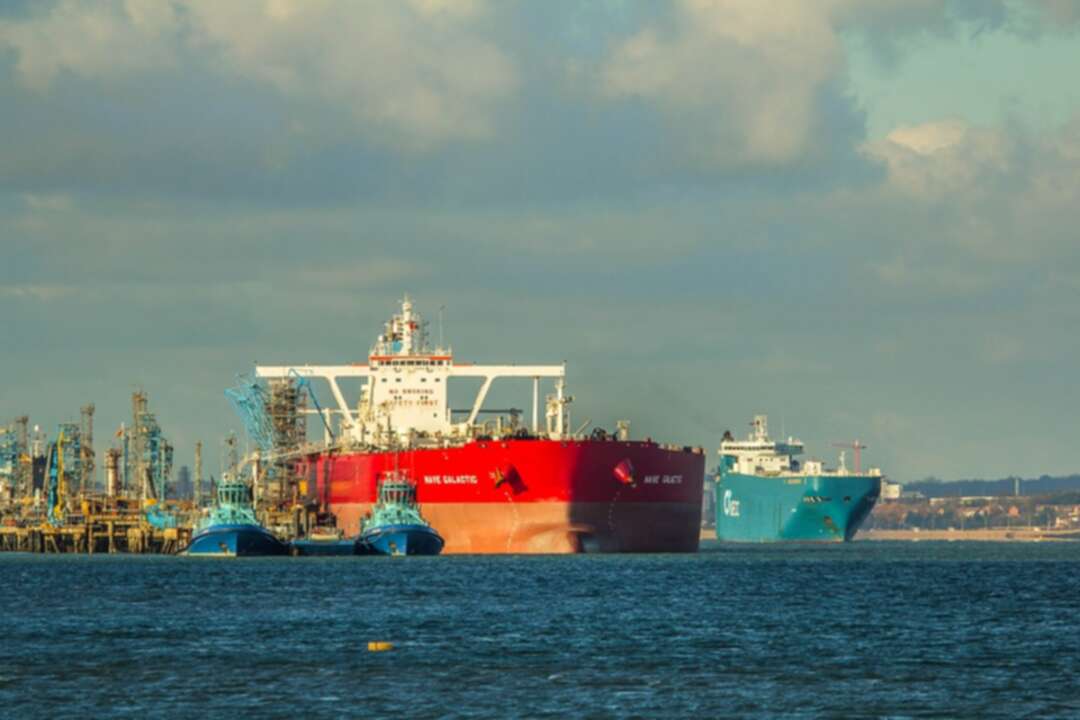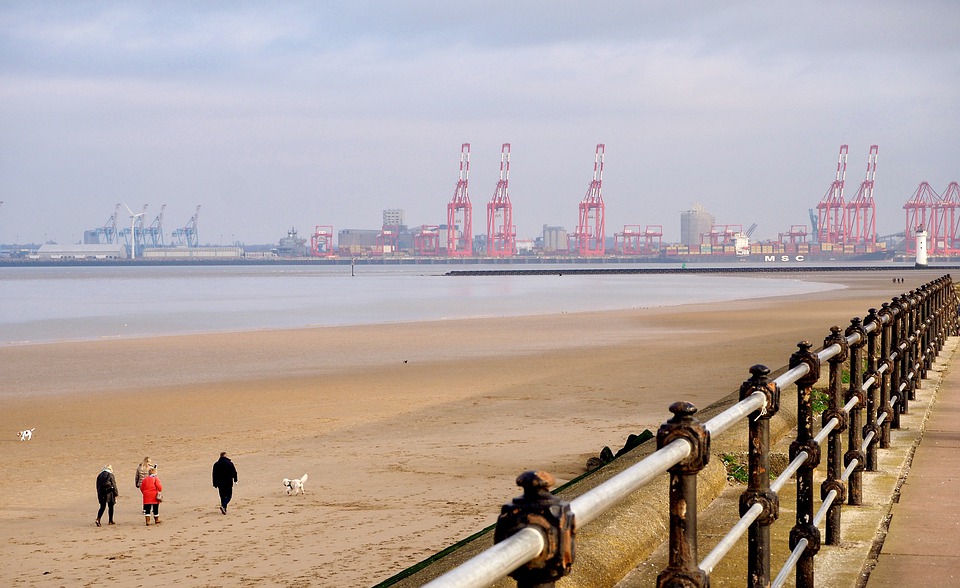-
Britain hails inaugurating new freeport which will open 'doors to the world'

The Express reported, Bexit Britain has been hailed for achieving a major victory by opening a new UK freeport which will "throw our doors open to the world".
The UK Government announced on Friday the Teesside Freeport is now “open for business”. Ministers hope that the port will come as a major boost to the area, as part of its plans to “level up” Britain’s poorer regions.
Freeports are ports where normal tax and customs rules do not apply. They are typically located around shipping ports and airports. There are around 80 of them dotted across nations in the EU.
Goods manufactured, imported and exported within these zones do not require the normal checks and paperwork.
Brexit Minister Lord David Frost said the opening of this new freeport demonstrated that the Government is “maximising the opportunities of Brexit”.

He said: “Having left the European Union we now have the freedom to do things differently, including setting up new freeports to turbo-charge our trade with the world’s fastest growing markets.
Read more: UK government seeks ban of single-use plastic plates and cutlery and polystyrene cups
“Today’s announcement is great news for Teesside and it shows that we are maximising the opportunities of Brexit to create well-paid jobs and drive growth right across the UK.
“As well as more freeports, we want to go further and faster to create a competitive, regulatory environment which supports innovation and boosts inward investment.”
Britain was able to open freeports while it was in the EU, but not without facing difficulties.
North Yorkshire MP Simon Clarke told MPs in 2018 that previous freeport projects failed “partly due to an uncharacteristic lack of ambition by the Thatcher Government, but mostly due to the regulatory constraints placed on them by the EU”.
Britain’s first freeports began operating under Prime Minister Margaret Thatcher in the 1980s.
Seven existed across the UK – including in Liverpool, Birmingham and Southampton – until the early 2000s.
Read more: Joe Biden to welcome African leaders next year for second US-Africa Leaders Summit
But in 2012, Prime Minister David Cameron decided not to renew their licences.
Freeports have, however, improved in popularity among Tory ranks and form a part of the Conservative Party’s “levelling up” agenda.
The Government quotes estimates that the Teesside Freeport will create 18,000 new highly skilled jobs and generate £3.2billion for the local community over the next five years.
To help it achieve these goals, ministers have given the port a share of £200million of funding “to support the region’s levelling up ambitions and become the UK’s clean energy powerhouse”.
Read more: Boosters and third doses to be added to COVID Pass in England
Tees Valley was announced as one of the first places to be granted freeport status in the March 2021 Budget.
Welcoming the opening of the Teesside Port, Tees Valley Mayor Ben Houchen said: “The day has finally come – after years of campaigning and shouting about the transformative potential of a freeport for Teesside, Darlington and Hartlepool, we’re at last open for business.”
He added: “We’re throwing our doors open to the world, showing businesses that we’re a truly outward-looking, international region ready to welcome the cutting-edge sectors of the future.”
Seven other areas were told they will home freeports earlier this year.
These were: East Midlands Airport, Felixstowe and Harwich, Humber region, Liverpool City Region, Plymouth, Solent and Thames.
Source: express
You May Also Like
Popular Posts
Caricature
BENEFIT Sponsors BuildHer...
- April 23, 2025
BENEFIT, the Kingdom’s innovator and leading company in Fintech and electronic financial transactions service, has sponsored the BuildHer CityHack 2025 Hackathon, a two-day event spearheaded by the College of Engineering and Technology at the Royal University for Women (RUW).
Aimed at secondary school students, the event brought together a distinguished group of academic professionals and technology experts to mentor and inspire young participants.
More than 100 high school students from across the Kingdom of Bahrain took part in the hackathon, which featured an intensive programme of training workshops and hands-on sessions. These activities were tailored to enhance participants’ critical thinking, collaborative problem-solving, and team-building capabilities, while also encouraging the development of practical and sustainable solutions to contemporary challenges using modern technological tools.
BENEFIT’s Chief Executive Mr. Abdulwahed AlJanahi, commented: “Our support for this educational hackathon reflects our long-term strategic vision to nurture the talents of emerging national youth and empower the next generation of accomplished female leaders in technology. By fostering creativity and innovation, we aim to contribute meaningfully to Bahrain’s comprehensive development goals and align with the aspirations outlined in the Kingdom’s Vision 2030—an ambition in which BENEFIT plays a central role.”
Professor Riyadh Yousif Hamzah, President of the Royal University for Women, commented: “This initiative reflects our commitment to advancing women in STEM fields. We're cultivating a generation of creative, solution-driven female leaders who will drive national development. Our partnership with BENEFIT exemplifies the powerful synergy between academia and private sector in supporting educational innovation.”
Hanan Abdulla Hasan, Senior Manager, PR & Communication at BENEFIT, said: “We are honoured to collaborate with RUW in supporting this remarkable technology-focused event. It highlights our commitment to social responsibility, and our ongoing efforts to enhance the digital and innovation capabilities of young Bahraini women and foster their ability to harness technological tools in the service of a smarter, more sustainable future.”
For his part, Dr. Humam ElAgha, Acting Dean of the College of Engineering and Technology at the University, said: “BuildHer CityHack 2025 embodies our hands-on approach to education. By tackling real-world problems through creative thinking and sustainable solutions, we're preparing women to thrive in the knowledge economy – a cornerstone of the University's vision.”
opinion
Report
ads
Newsletter
Subscribe to our mailing list to get the new updates!






















